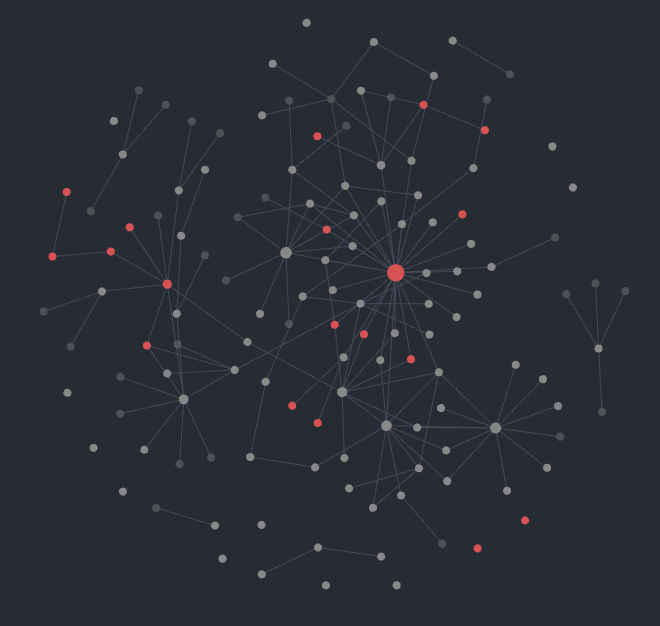Note-taking is simple, right?!
TL;DR: Try Obsidian.md — it's great!
Over the past few years, I’ve found myself in need of a tool to help me take notes — just to remember things, or to quickly store thoughts in the moment.
When I was younger, I never cared much about where I wrote those notes. I thought just writing them down was enough to remember them.
Silly me...
Eventually, I realized I couldn’t keep everything in my head, so I started searching for a better system.
And so, the journey began.
Like many others, I started with Evernote.
For 3–4 years, it was my go-to:
- A new idea? Write it in Evernote.
- A line of code I wanted to remember forever? Evernote.
- A quote that resonated with me? Evernote.
I was writing every day without caring much about organization.
I added tags when they felt relevant or dropped notes into a notebook if they were part of a project — but nothing fancy.
Over time, though, I started to feel like I was losing control.
Search helped, sure, but it masked a bigger problem:
I always had to search for something.
I wanted something more proactive, more intelligent.
Yeah, I know — those words are a bit overused, but they really do apply here.
So I switched.
And like many others, I moved to Notion.
At first, I thought I’d arrived. I could finally connect everything!
Each note had a place, they could be linked, visualized as a table, list, board...
And then — I got completely lost.
Still, I kept going. I cared for each note, gave them proper tags and metadata.
Everything had a home. Everything was structured.
And yet… something was still missing. I didn’t know what.
Fast forward a couple more years, and we’re nearly in the present.
Recently, I started reading more “useful” books instead of just fantasy and sci-fi.
One book in particular changed everything:
How to Take Smart Notes by Sönke Ahrens.
Through it, I discovered the Zettelkasten method.
That was the missing piece!
What I’d needed all along was a way to link my notes and build structure through connections.
So... a new journey began.
Now I needed a tool that supported the Zettelkasten approach.
To be fair, Notion could do the job — but not in the way I needed.
I wanted something more minimal. I didn’t want to get buried in features.
Then I came across Roam Research.
But $15/month for a note-taking app (without a yearly commitment)? Not happening.
So I kept looking — and found Foam.
A note-taking toolkit built on Visual Studio Code, with GitHub support, my extensions, and a graph view.
What more could I ask for?
At first, Foam was amazing.
The graph view was invaluable, and I spent a lot of time linking my notes.
You never know when a connection could spark a new idea.
But then... I made a mistake: I organized my notes into folders.
Foam doesn’t need folders — links are enough.
But I wanted folders anyway.
That decision led to broken links, duplicated notes, and a small filesystem mess.
It’s mostly fixed now, but something broke for me.
Foam tries to do something VSCode wasn’t really built for — and it shows.
Aaand I was lost again.
So I had a little talk with my future self:
“You're not going to buy new games every month and let them rot in your Steam library.
You're going to spend $15/month on Roam!”
So I jumped in.
This time, I had a clear goal:
This would be my Second Brain.
I’d feed it so well it would spit out ideas faster than I could handle.
Note, link, note, link, link everything! Muahahah!
But wait... bullet points only?
How do I write a proper article here?
Where's the formatting for long-form notes?
Nope. Just bullet points.
I get the appeal — atomic notes, infinite linkability, etc.
But it’s not what I’m looking for.
“Yes! I have my $15/month back — more games for my ‘I’ll play you soon’ collection!”
Finally, we reach the end of this journey.
Obsidian.md genuinely feels like my endgame note-taking system.
It has everything Foam offers — but purpose-built.
It does what Roam does — but with proper formatting.
It lacks the clutter of Notion — and that helps me just write.

My graph is still small — I haven’t imported everything yet.
But this is just the beginning. I’ll gradually migrate my notes here and grow my new Second Brain.
Oh, and I even started building a plugin for Obsidian:
liquid-templates — it adds support for LiquidJS-style tags in your templates.
If you're curious, stick around.
...You read it all?? 😳
I’m sorry — I’m all out of potatoes. So instead...
YOU’RE BREATHTAKING.
- ← Previous
Forecastle: my services Dashboard of choice - Next →
Writing for Myself